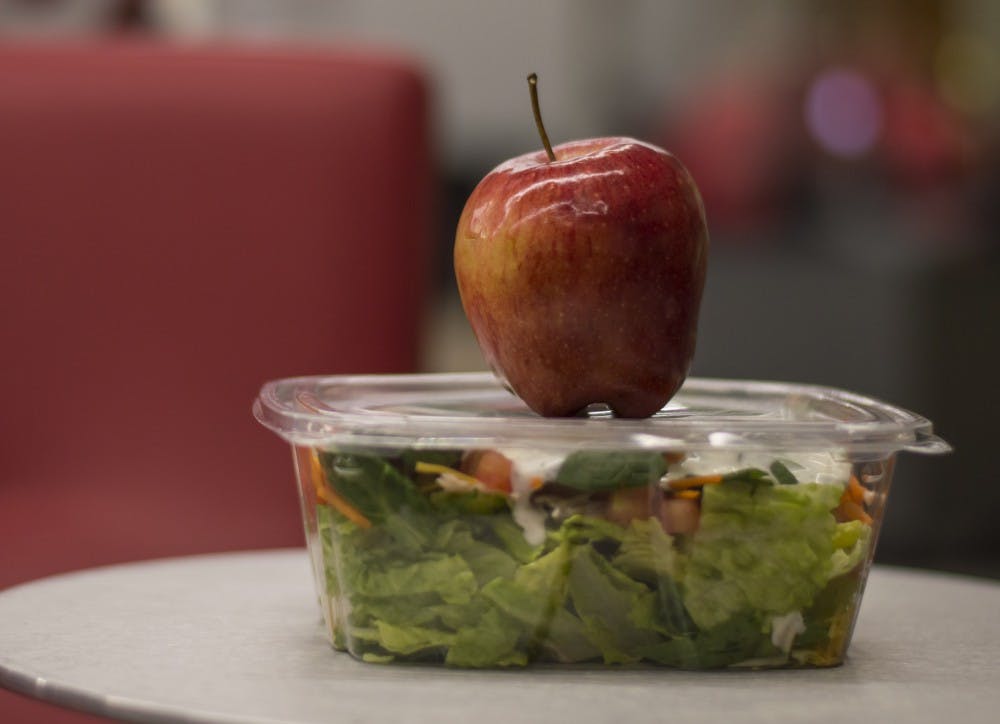If you're looking for gluten-free foods on campus, Ball State's Net Nutrition can provide a list of every item at every dining hall that fits your needs.
Consider the impact a diet can have on your health.
You can lose weight. But is it healthy? Certain diet fads can impact health in a negative way, rather than a positive one. Diets restrict types of foods that may have a negative impact on health and weight, but these foods may also provide certain nutrients our body needs.
The gluten-free diet can be considered the in-between when it comes to dangerous diet fads. The impact can be negative or it can be positive.
“If you decide to go gluten-free and you aren’t gluten sensitive, you may start feeling better just because you are eating more healthfully and being more conscious of your food choices,” said Bekah Vukovich, a nutrition and dietetics graduate student and consultant for Working Well Nutrition at Ball State.
However, throwing out gluten if you don't have an allergy is not typically recommended as you can lose important vitamins, minerals and fiber.
Gluten is a general term for a protein found in grains like wheat, barley and rye. Gluten is found in fiber rich foods like pasta and bread. Soup, sauces, beer and other foods may contain gluten too.
Some chose to be gluten-free. Others are forced to maintain a strict gluten-free diet.
A strict gluten-free diet is required if you have celiac disease, a genetic autoimmune disorder. For someone with celiac disease, gluten damages the intestine.
“Over the course of my life, I always thought my stomach hurt after meals because I ate too fast or just too much,” Payton Domschke, a freshman geography major said.
Domschke discovered she had celiac disease during high school after struggling with the pain and symptoms of the disease.
One in 100 people have the disease.
The disease is only diagnosed by a blood test. Some people do not test positive but still experience similar symptoms. The term for this allergy is non-celiac gluten sensitivity or non-celiac wheat sensitivity.
Symptoms of the allergy include bloating, diarrhea, headaches, depression or chronic fatigue. The intensity may vary depending on the individual’s tolerance.
Eating naturally gluten-free products or whole grains can improve health because some items, such as fruits and vegetables, are healthier than certain foods. However, many gluten-free items often have additives to mimic the original product. These additives can be unhealthy.
Finding the proper replacement is important. The diet can lack the proper nutrients when food replacements are not planned accordingly.
A strict gluten-free diet can also be costly and timely.
“When being at home and within a family dynamic, I found changing my diet a difficult task to handle in the beginning,” Domschke said.
Being gluten-free involves careful label reading and avoiding cross contamination in the food. Eating out can be a difficult task for strict gluten-free diets.
“When it comes to customer service, others sometimes do not understand what gluten is in general or how to cater to that need,” Domschke said.
Some restaurants have a gluten-free menu, but most do not.
Eating on campus can be easier. Boar's Head Deli and other sandwich locations on campus offer gluten-free bread and tortillas. But the items are more expensive.
Gluten-free products on campus cost a dollar more. Meal plans can be adjusted for students with a food allergy.
Ball State Dining requires a dietary needs form to be filled out by a doctor and turned into the office in Carmichael Hall.
Whether you're staying away from gluten because you have to, or just want make the choice to, it's important to consult a doctor or dietician and make sure your body gets the nourishment it needs.




